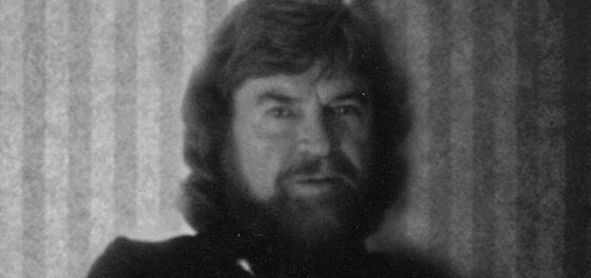Sam Phillips
January 5, 1923 - July 30, 2003
1987 Inductee
Florence native Sam Phillips – the music visionary credited as the “Father of Rock ’n’ Roll” – ignited an earth-shaking cultural revolution with his fateful discovery of Elvis Presley and his trailblazing establishment of the star-making Sun Records label in Memphis, Tennessee.
A little more than a year after launching Sun, Phillips produced Presley’s historic first recordings – the double-sided debut single “That’s All Right, Mama” and “Blue Moon of Kentucky” – before signing future superstars Johnny Cash, Jerry Lee Lewis, Carl Perkins, Roy Orbison and Charlie Rich to his independent record label.
In addition to Presley’s first five singles – which also included “Mystery Train” and “Good Rockin’ Tonight” – Phillips and Sun produced such landmark recordings as Cash’s “Folsom Prison Blues,” and “I Walk the Line,” Lewis’ “Whole Lotta Shakin’ Goin’ On” and “Great Balls of Fire” and Perkins’ “Blue Suede Shoes,” the first song to hit No. 1 on the pop, country and rhythm-and-blues charts.
In his childhood, Phillips fell in love with the black blues and gospel he heard in the farm fields and churches of his Florence hometown. As a young man he went to work as a disc jockey at WLAY Radio in Muscle Shoals before deciding to move to Memphis, where he was able to continue his radio career in a much larger metropolitan market.
Once there, Phillips made the daring decision to open a bare-bones custom recording studio at 706 Union Avenue, just a few blocks from Beale Street. The Memphis Recording Service opened in 1950 bearing an ambitious business slogan, “We Record Anything – Anywhere – Anytime.”
Even though he was operating in the rigidly segregated South, Phillips opened his studio to black musical talent from the Mississippi Delta. Many of Beale Street’s top blues performers cut their first records with Phillips, including Howlin’ Wolf, B.B. King, James Cotton, Rosco Gordon, Rufus Thomas, Junior Parker, Bobby “Blue” Bland and Little Milton. In 1951, Phillips recorded a song called “Rocket 88” by the R& B act Jackie Brenston and the Delta Cats (with young Ike Turner on piano). The resulting single – which captured the spirit of fast cars, fast women and fast living – is generally regarded as the first genuine “rock ’n’ roll” record.
Two years later, Phillips launched his Sun Records label, scoring his first hit with Rufus Thomas’ “Bear Cat,” a rollicking male response to Big Mama Thornton’s “Hound Dog.” He also transformed the Prisonaires – a group of singing inmates from the Tennessee State Penitentiary – into a hit recording act with their transcendent and soulful “Just Walking in the Rain.”
Up to that point, Phillips’ success had been largely confined to black artists restricted to the black rhythm-and-blues market. Hoping to unite the races through music, Phillips made the famous statement, “If I can find a white man who can sing with a black man’s soul, I can make a million dollars.” Phillips found a handsome, hip-swinging solution when he recorded Presley, a white country and pop singer heavily influenced by black gospel, blues and R&B.
Phillips sold Presley’s contract to RCA in 1955 for what was then an unprecedented sum of $35,000, plus $5,000 in back royalties. He invested that money in Sun, paving the way for the success of Cash, Perkins, Lewis and other promising young rock ’n’ roll acts. Phillips continued to own Sun until 1969 – when he sold the company to Shelby Singleton – but by the mid-’60s independent record companies had been overwhelmed by major labels and the British Invasion.
After selling Sun, Phillips’ devotion to music and radio continued through his ownership of radio stations across the Southeast, including his hometown of Florence. He also explored several successful business endeavors, including early investment in the Holiday Inn hotel chain.
In 1986, Phillips was one of the charter inductees in the Rock ’n’ Roll Hall of Fame. He was later inducted into the Alabama Music Hall of Fame, Country Music Hall of Fame, Blues Hall of Fame, Rhythm-and-Blues Foundation Hall of Fame and Rockabilly Hall of Fame. Phillips received an honorary Grammy Award for Lifetime Achievement in 1991.
In 2000, the A&E cable network produced a two-hour documentary, Sam Phillips: The Man Who Invented Rock ’n’ Roll, for the award-winning Biography series. Phillips died of respiratory failure in Memphis three years later.


